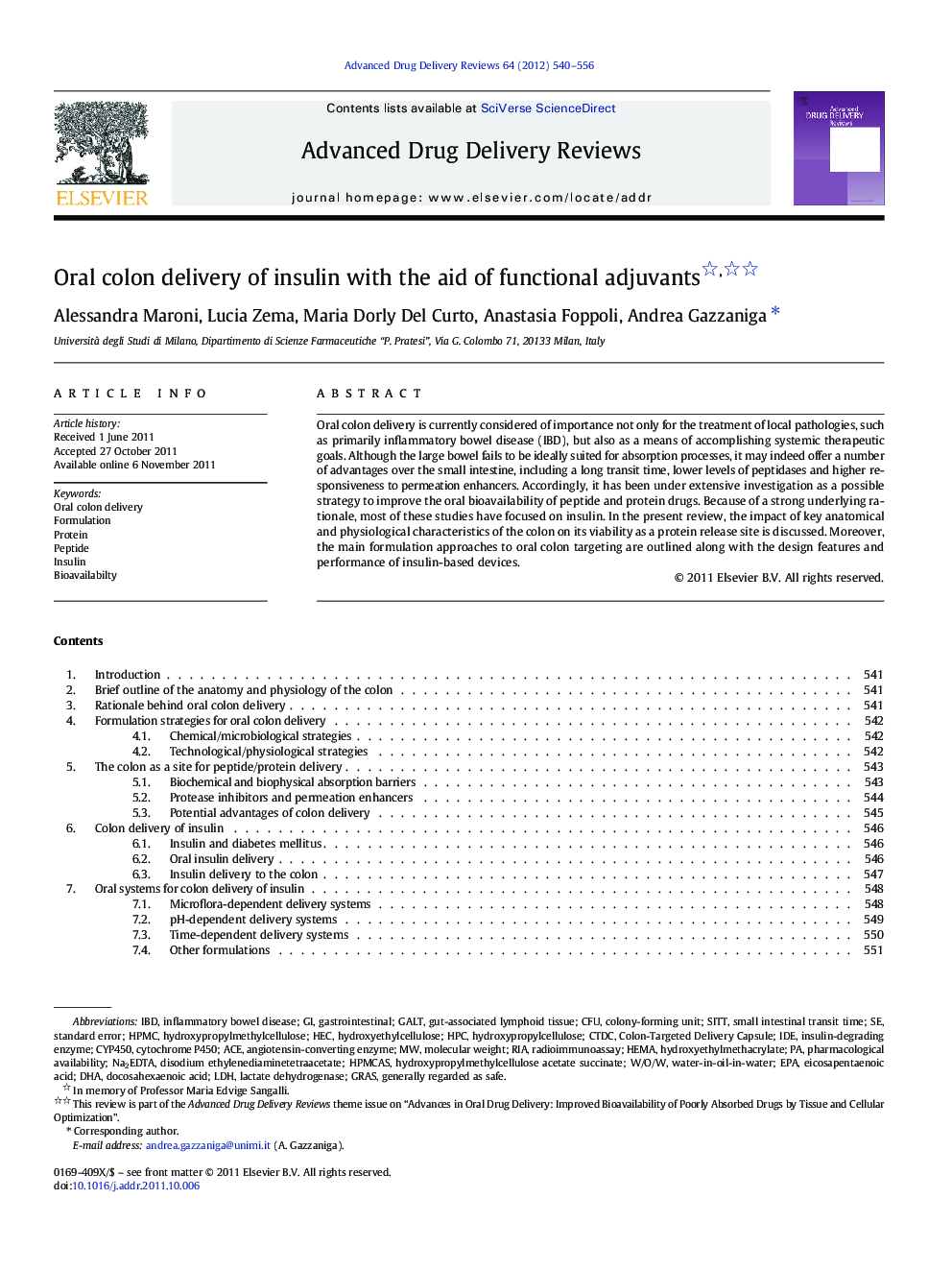| Article ID | Journal | Published Year | Pages | File Type |
|---|---|---|---|---|
| 2071191 | Advanced Drug Delivery Reviews | 2012 | 17 Pages |
Oral colon delivery is currently considered of importance not only for the treatment of local pathologies, such as primarily inflammatory bowel disease (IBD), but also as a means of accomplishing systemic therapeutic goals. Although the large bowel fails to be ideally suited for absorption processes, it may indeed offer a number of advantages over the small intestine, including a long transit time, lower levels of peptidases and higher responsiveness to permeation enhancers. Accordingly, it has been under extensive investigation as a possible strategy to improve the oral bioavailability of peptide and protein drugs. Because of a strong underlying rationale, most of these studies have focused on insulin. In the present review, the impact of key anatomical and physiological characteristics of the colon on its viability as a protein release site is discussed. Moreover, the main formulation approaches to oral colon targeting are outlined along with the design features and performance of insulin-based devices.
Graphical abstractFigure optionsDownload full-size imageDownload high-quality image (103 K)Download as PowerPoint slide
